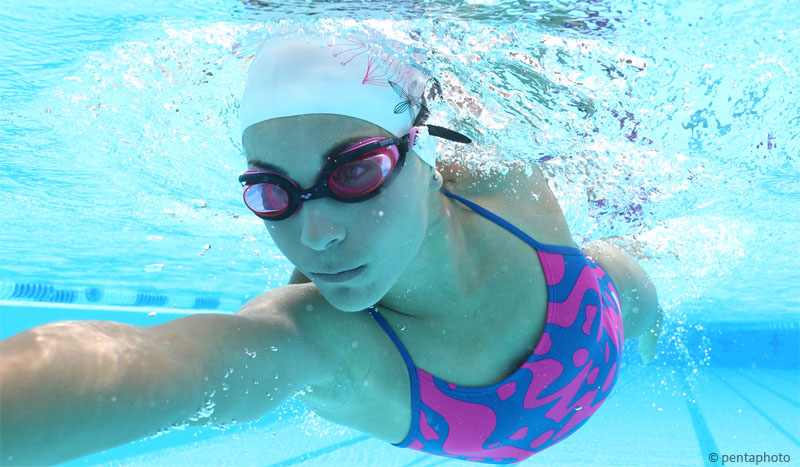Can you wear contact lenses when swimming? Here’s what you need to know about the risks and your options.
Most people don’t have perfect vision. If you’re far-sighted, you may feel a bit helpless at a restaurant when you’re unable to read the menu. At the pool, though, near-sightedness is usually a bigger issue. Some people just put up with blurry vision as long as they can see the black lines and avoid fellow swimmers, but others really want (or need) to wear their contacts.
Should you swim with contact lenses? Your eye doctor will say that you shouldn’t, and that you shouldn’t shower with your lenses in either. Water is full of microbes that your eye’s normal defence mechanisms, tears and blinking, usually wash away. With a contact lens in your eye, however, these microorganisms can get trapped behind the lens. Lakes and rivers are more likely to host bacteria, but swimming pools and even tap water can harbour dangerous microbes as well, including the Acanthamoeba organism, which causes Acanthamoeba keratitis, a painful corneal infection that is difficult to treat and can cause permanent vision loss.
The chemicals in swimming pools can also be more irritating to your eyes if you’re wearing contacts, particularly soft contact lenses, which are porous and absorb chemicals. Plus, water can wash away the eye’s natural tear film, making your eyes feel drier. And, of course, there’s always the risk that you might lose a contact in the pool, especially if you wear rigid gas permeable lenses.
If you need contacts to see while you’re swimming, you should definitely wear a good pair of goggles to protect your eyes from potential infection and make sure your contacts don’t get dislodged. Your goggles need to fit very snugly to keep the water out, so make sure you try several different styles to find the pair that has the best nose bridge, seals and straps to fit your face.
Even with goggles, it’s best to wear daily disposable lenses in the pool, and then throw your disposable lenses away as soon as you finish swimming. If you can’t wear disposables, remove your lenses and clean and disinfect them as soon as possible after you get out of the pool.
Contact your eye doctor right away if you experience any persistent pain, irritation or light sensitivity after swimming while wearing contact lenses.
You could also look into orthokeratology, which uses specially fitted contact lenses (usually worn at night) to temporarily reshape the cornea, or laser eye surgery for a permanent solution. Talk to your eye doctor to see if you’re a good candidate for either of these options.
If you’re near-sighted, what’s your solution for swimming?
—————
Are you looking for the ideal goggles for your own specific needs? Take a look here!
